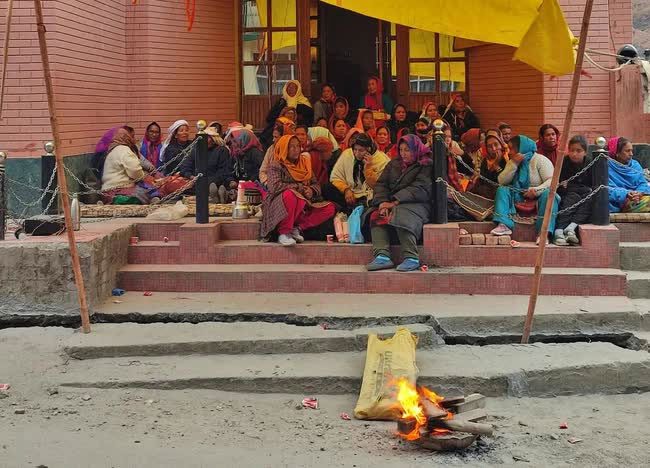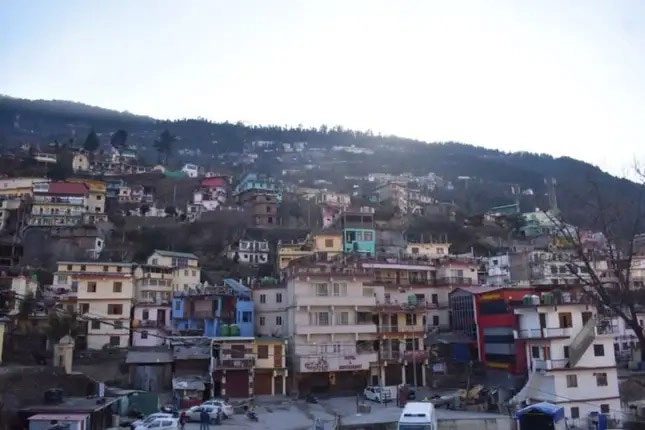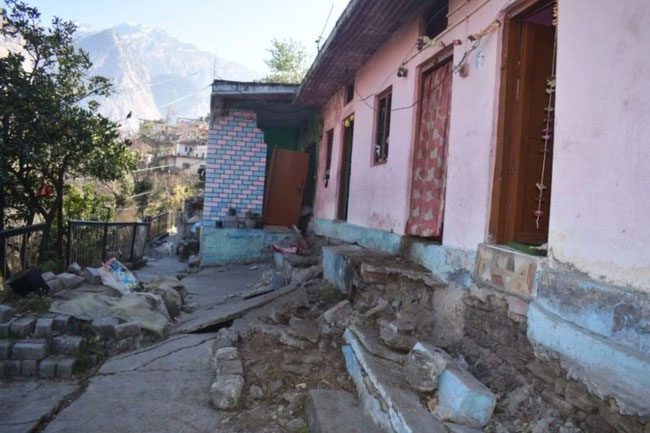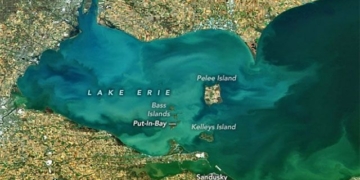Buildings and roads in Joshimath, India, are experiencing numerous cracks, raising concerns that the city, located at an altitude of 1,875 meters above sea level, is gradually sinking.
Rishi Devi, 37, is currently taking shelter in a public school in Joshimath with her family. When temperatures drop to minus 3.5 degrees Celsius on cold winter nights, she manages to survive with just a few woolen clothes. However, her main worry is the health of her 6-month-old baby.
Like Rishi Devi, many families in Joshimath – a famous pilgrimage site nestled in the Himalayas of Uttarakhand state, north of New Delhi, India – have been forced to live in temporary shelters in recent days.
As of January 9, 678 houses in 9 wards have reported cracks and are uninhabitable, according to government data. So far, local authorities have relocated 81 residents to temporary accommodations. The government has also arranged for 4,000 people in Joshimath and the nearby village of Pipalkoti.
“Our house is completely damaged. The authorities moved us to a public school, but it’s not easy to live here in this freezing cold with my six-month-old baby,” Rishi Devi said.

Large cracks are appearing throughout the city of Joshimath. (Photo: Reuters).
Similarly, Kishore Kumar Valmiki, 28, is also worried about his future. All six members of his family – his parents, wife, and two children – are currently homeless. Valmiki works as a cleaner in a city company. His house first developed cracks about 14 months ago. They then had to rent another house, but it too has now cracked.
Likewise, Veena Devi received a house through a government welfare program, but it has now become dangerous.
What is happening in Joshimath?
Situated at an altitude of 1,875 meters above sea level, Joshimath is a crucial gateway for expeditions into the Himalayas. It is also an important stop and resting point for pilgrims visiting Badrinath and Hemkund Sahib in the summer, as well as tourists coming to Auli in the winter. The increasing number of tourists each year brings many job opportunities for locals, but the rapid development has also led to numerous problems for Joshimath.
According to experts, this fragile mountainous region cannot sustain the burden of rampant development from road construction and luxury hotels.

Nearly 20,000 people live in Joshimath. (Photo: Satyam Kumar/ Mongabay India)
SP Sati, an associate professor of environmental science at the Forestry University in Ranichauri, explained the root causes of the current crisis in Joshimath. Professor Sati, also a geological research expert, stated: “Joshimath is built on ancient landslide debris. If we look back in time, it was the capital of the Katyuri dynasty. These kings had to relocate after several natural disasters struck the town.”
Buildings in Joshimath first showed signs of cracking in the 1960s. This was the first evidence of cracks forming in the Joshimath region, and it was believed to pose risks to residents. The situation quickly worsened, leading the authorities to establish a dedicated committee to investigate the causes behind the town’s gradual sinking. The committee submitted its report on May 7, 1976.
One of the committee’s recommendations suggested immediately halting blasting for rock excavation. Other recommendations included developing a drainage system in the town to prevent rainwater infiltration, avoiding earth excavation on slopes, and collecting building materials from a 5 km radius, while also banning tree cutting to prevent landslides.
However, despite these recommendations, the construction of roads, dams, tunnels, and multi-story buildings has continued unabated, and the situation has deteriorated to the point where the very existence of Joshimath is at risk.
“Currently, it is not possible to repair the damage. At the rate at which cracks are developing, it seems that much of the terrain of Joshimath will no longer exist. The government’s priority should be to help people evacuate and relocate them to temporary accommodations. However, if we want to ensure that no other city in any other state suffers the same fate as Joshimath, we must implement specific policies,” Sati added.
Safe evacuation is the top priority
Social workers in Joshimath are urging the government to assist in safely evacuating residents. Anoop Nautiyal, founder of the Community Social Development Organization, stated: “The situation in Joshimath has gone beyond control. To avoid major disasters, the government should help people reach safety immediately.”
According to Nautiyal, the authorities are assisting residents whose homes are completely damaged to move to buildings in the city, such as primary schools, temples, and guesthouses. However, since these places are still in Joshimath, they are not entirely safe either.

As of January 9, 2023, 678 houses in 9 wards have reported cracks, and these homes are no longer suitable for habitation. (Photo: Satyam Kumar/ Mongabay India)
Environmentalist Himanshu Thakkar noted that the geography and hydrology of the Joshimath area are very fragile. He remarked: “In recent years, many incidents have occurred in and around Joshimath indicating that something catastrophic is about to happen.”
Thakkar referred to past disasters such as the landslide in 1970 and the flash floods in Raini village in 2021. He also criticized the authorities for ignoring residents’ complaints about the cracks. Last December, a state-owned company even used explosives to drill a tunnel for the Tapovan-Vishnugadh hydroelectric project, which subsequently led to reports of large amounts of water gushing in some areas.
Activists are also questioning how the government is aiding the evacuation and relocation of residents to safe locations. According to the latest bulletin released on January 9, arrangements have been made to provide temporary housing for 1,191 people in Joshimath and 2,205 in the nearby village of Pipalkoti. The authorities are also providing dry ration kits and cooked food packages for the poor.
However, Anoop Nautiyal expressed that this is insufficient and too slow, as the number of people in need of assistance is much larger. “This is an emergency situation, and the government must act quickly to regain the trust of the people as they are panicking,” he added.


















































